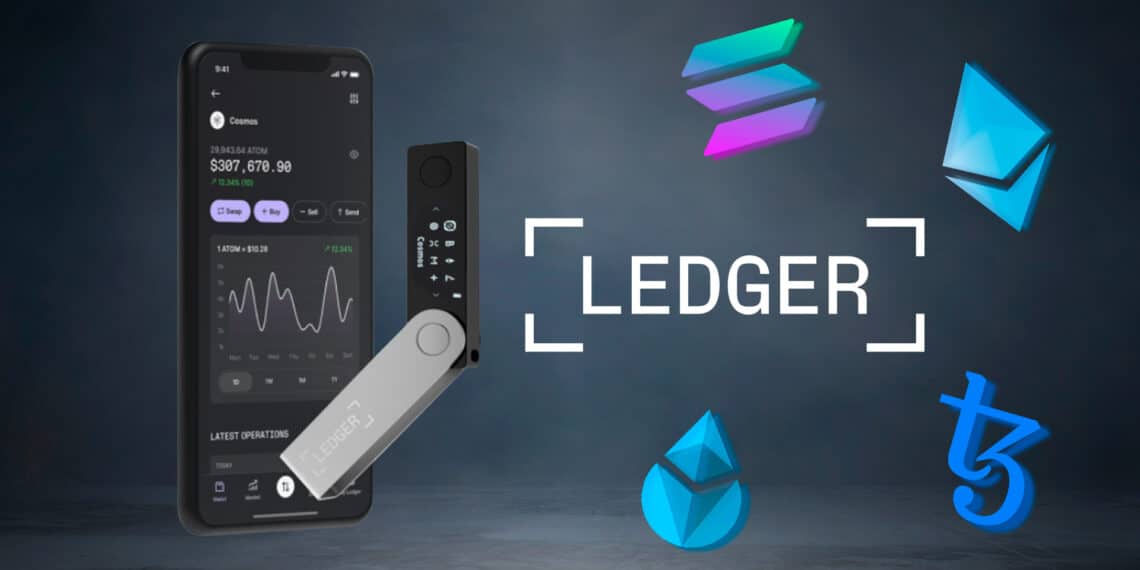Whoa! So, I was messing around with an NFT the other day and it hit me—keeping that digital art safe ain’t just about owning it, it’s about locking down your private keys like Fort Knox. Seriously, most folks dive headfirst into flashy NFTs but totally overlook how fragile their crypto security really is. Here’s the thing: your shiny new NFT is only as secure as the hardware wallet guarding its private keys. If you get careless, you might as well just hand over your tokens on a silver platter.
I’ve seen wallets that promise the moon but lack robust NFT support or, worse, skimp on private key protection. That bugs me. Because in this space, security isn’t just a feature—it’s the lifeline. And as NFTs grow from niche collectibles to serious assets, the stakes keep climbing.
Initially, I thought, «Okay, hardware wallets are just for storing coins securely.» But then, NFTs entered the scene, and things got more nuanced. Unlike traditional crypto assets, NFTs demand wallets that understand their unique metadata and token standards, while still locking down your keys tight.
On one hand, supporting NFTs means your wallet needs to handle a bunch of new token types and smart contract quirks. Though actually, if the wallet’s core security is solid, adapting to NFTs shouldn’t be a stretch. But on the other hand, if the wallet’s firmware or companion app isn’t nailed down, you risk exposure every time you interact with your collectibles.
Something felt off about many popular wallets claiming ‘NFT support’—they often rely too heavily on external platforms, which can introduce vulnerabilities. The safest bet? Hardware wallets with native NFT compatibility, combined with ironclad private key protection.
Okay, so check this out—Ledger Live has been stepping up here. I mean, they don’t just store your coins; they let you manage NFTs directly, all while keeping your keys offline and under your control. I’m biased, but I’ve been using their setup for a while, and it’s pretty slick. The integration feels seamless, and the security model? Solid as a rock.

The way Ledger’s device isolates your private keys from the internet is crucial. Your keys never leave the device, so even if your computer gets compromised, your crypto stays safe. That’s a big deal, especially for NFT collectors who might not be as crypto-savvy but still want to keep their assets secure.
But here’s a twist: managing NFTs isn’t just about storing them safely. You also want to be able to showcase, trade, or even gift them without jumping through hoops. Some wallets still make this awkward, forcing you to juggle multiple apps or expose your keys during transactions.
And that’s where good crypto security practices come in. You gotta protect your private keys like your life depends on it—because, well, in this space it kinda does. Using hardware wallets that support NFTs natively, like Ledger Live, is a way to keep your keys offline, while still interacting with your assets easily.
I’m not 100% sure everyone fully appreciates how crucial this is. For instance, if you lose your seed phrase or store it digitally in a cloud—which seems convenient but is a nightmare waiting to happen—you’re basically inviting hackers to your party. No wallet, no matter how fancy, can save you then.
Something else worth mentioning: some folks assume multi-signature wallets solve all security problems, but actually, they add complexity that might trip you up if you’re not careful. They’re great for institutional-level protection but can be overkill for everyday collectors.
So yeah, private key protection isn’t just about locking things down. It’s about managing risk smartly, knowing when to trade convenience for security. And with NFTs, that balance shifts because the assets are unique and often irreplaceable.
Why Hardware Wallets Are Still the Gold Standard for NFT Security
Here’s what bugs me about software wallets—they’re super handy but also a big attack surface. Malware, phishing, browser exploits… the list goes on. I had a buddy who lost a modest NFT collection because he never bothered with a hardware wallet. He thought his password manager was enough. Nope.
Hardware wallets act like a vault. Your keys never touch the internet, which means hackers can’t snatch them remotely. Plus, devices like Ledger offer a secure element chip that’s designed to resist physical tampering—pretty neat tech.
But there’s a catch. Not all hardware wallets have robust NFT support yet. Some only manage standard cryptocurrencies, which means if you want to hold or trade NFTs, you might have to jump through extra hoops or rely on third-party apps. That’s not ideal.
Thankfully, the landscape is evolving fast. Ledger Live, for example, is bridging that gap by integrating NFT management directly within its app. That means you can view, send, and receive NFTs without exposing your private keys or relying on sketchy external platforms. It’s a step forward that makes me optimistic.
Still, the human error factor can’t be ignored. Even with the best hardware wallet, if you’re sloppy with your recovery phrase or fall for a scam, you’re toast. That’s why education is as important as technology.
By the way, if you wanna dive deeper into how Ledger Live handles this stuff, check out https://sites.google.com/cryptowalletuk.com/ledger-live/. Their resources helped me get a better grip on managing NFTs securely.
And before you ask, yes, Ledger isn’t perfect. They’ve had hiccups, and no solution is foolproof. But balancing usability with security is tough, and they’re among the best at it right now.
One last thought: NFTs often get lumped into ‘fun collectibles,’ but as they become investments or even identity markers, the security stakes ramp up. Treat your private keys like your passport, because losing them means losing access, and there’s no customer service hotline for that.
Common Questions About NFT Security and Hardware Wallets
Why can’t I just keep my NFTs in a regular crypto wallet?
Many standard wallets don’t fully support NFT standards like ERC-721 or ERC-1155, which means your NFTs might not display correctly or could be harder to manage. Plus, they might not secure your private keys as strongly as hardware wallets, increasing risk.
Are hardware wallets really necessary for NFT collectors?
Absolutely. Hardware wallets store your private keys offline, making it way harder for hackers to steal your assets. Given that NFTs are often unique and valuable, this level of protection is well worth it.
How does Ledger Live improve NFT management?
Ledger Live integrates NFT viewing and transactions directly in its app while keeping your private keys secure on the device. That way, you get convenience without compromising security—pretty much the best of both worlds.
What’s the biggest mistake NFT holders make with security?
Not backing up their recovery phrase securely or sharing it digitally. Also, using wallets without strong private key protection or relying on untrusted third-party apps can expose you to theft.
